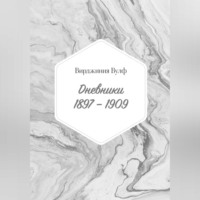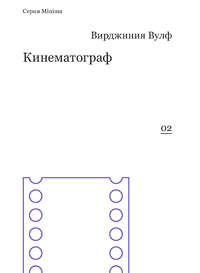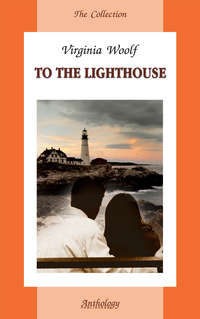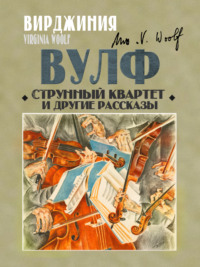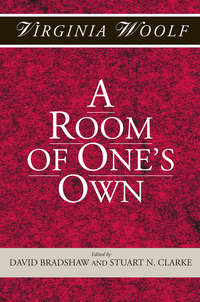 полная версия
полная версияNight and Day
“Who is lying ill in bed, Katharine?” she demanded. “Which of our friends wants cheering up? Who feels that they’ve been forgotten and passed over, and that nobody wants them? Whose water rates are overdue, and the cook leaving in a temper without waiting for her wages? There was somebody I know – ” she concluded, but for the moment the name of this desirable acquaintance escaped her. The best representative of the forlorn company whose day would be brightened by a bunch of anemones was, in Katharine’s opinion, the widow of a general living in the Cromwell Road. In default of the actually destitute and starving, whom she would much have preferred, Mrs. Hilbery was forced to acknowledge her claims, for though in comfortable circumstances, she was extremely dull, unattractive, connected in some oblique fashion with literature, and had been touched to the verge of tears, on one occasion, by an afternoon call.
It happened that Mrs. Hilbery had an engagement elsewhere, so that the task of taking the flowers to the Cromwell Road fell upon Katharine. She took her letter to Cassandra with her, meaning to post it in the first pillar-box she came to. When, however, she was fairly out of doors, and constantly invited by pillar-boxes and post-offices to slip her envelope down their scarlet throats, she forbore. She made absurd excuses, as that she did not wish to cross the road, or that she was certain to pass another post-office in a more central position a little farther on. The longer she held the letter in her hand, however, the more persistently certain questions pressed upon her, as if from a collection of voices in the air. These invisible people wished to be informed whether she was engaged to William Rodney, or was the engagement broken off? Was it right, they asked, to invite Cassandra for a visit, and was William Rodney in love with her, or likely to fall in love? Then the questioners paused for a moment, and resumed as if another side of the problem had just come to their notice. What did Ralph Denham mean by what he said to you last night? Do you consider that he is in love with you? Is it right to consent to a solitary walk with him, and what advice are you going to give him about his future? Has William Rodney cause to be jealous of your conduct, and what do you propose to do about Mary Datchet? What are you going to do? What does honor require you to do? they repeated.
“Good Heavens!” Katharine exclaimed, after listening to all these remarks, “I suppose I ought to make up my mind.”
But the debate was a formal skirmishing, a pastime to gain breathing-space. Like all people brought up in a tradition, Katharine was able, within ten minutes or so, to reduce any moral difficulty to its traditional shape and solve it by the traditional answers. The book of wisdom lay open, if not upon her mother’s knee, upon the knees of many uncles and aunts. She had only to consult them, and they would at once turn to the right page and read out an answer exactly suited to one in her position. The rules which should govern the behavior of an unmarried woman are written in red ink, graved upon marble, if, by some freak of nature, it should fall out that the unmarried woman has not the same writing scored upon her heart. She was ready to believe that some people are fortunate enough to reject, accept, resign, or lay down their lives at the bidding of traditional authority; she could envy them; but in her case the questions became phantoms directly she tried seriously to find an answer, which proved that the traditional answer would be of no use to her individually. Yet it had served so many people, she thought, glancing at the rows of houses on either side of her, where families, whose incomes must be between a thousand and fifteen-hundred a year lived, and kept, perhaps, three servants, and draped their windows with curtains which were always thick and generally dirty, and must, she thought, since you could only see a looking-glass gleaming above a sideboard on which a dish of apples was set, keep the room inside very dark. But she turned her head away, observing that this was not a method of thinking the matter out.
The only truth which she could discover was the truth of what she herself felt – a frail beam when compared with the broad illumination shed by the eyes of all the people who are in agreement to see together; but having rejected the visionary voices, she had no choice but to make this her guide through the dark masses which confronted her. She tried to follow her beam, with an expression upon her face which would have made any passer-by think her reprehensibly and almost ridiculously detached from the surrounding scene. One would have felt alarmed lest this young and striking woman were about to do something eccentric. But her beauty saved her from the worst fate that can befall a pedestrian; people looked at her, but they did not laugh. To seek a true feeling among the chaos of the unfeelings or half-feelings of life, to recognize it when found, and to accept the consequences of the discovery, draws lines upon the smoothest brow, while it quickens the light of the eyes; it is a pursuit which is alternately bewildering, debasing, and exalting, and, as Katharine speedily found, her discoveries gave her equal cause for surprise, shame, and intense anxiety. Much depended, as usual, upon the interpretation of the word love; which word came up again and again, whether she considered Rodney, Denham, Mary Datchet, or herself; and in each case it seemed to stand for something different, and yet for something unmistakable and something not to be passed by. For the more she looked into the confusion of lives which, instead of running parallel, had suddenly intersected each other, the more distinctly she seemed to convince herself that there was no other light on them than was shed by this strange illumination, and no other path save the one upon which it threw its beams. Her blindness in the case of Rodney, her attempt to match his true feeling with her false feeling, was a failure never to be sufficiently condemned; indeed, she could only pay it the tribute of leaving it a black and naked landmark unburied by attempt at oblivion or excuse.
With this to humiliate there was much to exalt. She thought of three different scenes; she thought of Mary sitting upright and saying, “I’m in love – I’m in love”; she thought of Rodney losing his self-consciousness among the dead leaves, and speaking with the abandonment of a child; she thought of Denham leaning upon the stone parapet and talking to the distant sky, so that she thought him mad. Her mind, passing from Mary to Denham, from William to Cassandra, and from Denham to herself – if, as she rather doubted, Denham’s state of mind was connected with herself – seemed to be tracing out the lines of some symmetrical pattern, some arrangement of life, which invested, if not herself, at least the others, not only with interest, but with a kind of tragic beauty. She had a fantastic picture of them upholding splendid palaces upon their bent backs. They were the lantern-bearers, whose lights, scattered among the crowd, wove a pattern, dissolving, joining, meeting again in combination. Half forming such conceptions as these in her rapid walk along the dreary streets of South Kensington, she determined that, whatever else might be obscure, she must further the objects of Mary, Denham, William, and Cassandra. The way was not apparent. No course of action seemed to her indubitably right. All she achieved by her thinking was the conviction that, in such a cause, no risk was too great; and that, far from making any rules for herself or others, she would let difficulties accumulate unsolved, situations widen their jaws unsatiated, while she maintained a position of absolute and fearless independence. So she could best serve the people who loved.
Read in the light of this exaltation, there was a new meaning in the words which her mother had penciled upon the card attached to the bunch of anemones. The door of the house in the Cromwell Road opened; gloomy vistas of passage and staircase were revealed; such light as there was seemed to be concentrated upon a silver salver of visiting-cards, whose black borders suggested that the widow’s friends had all suffered the same bereavement. The parlor-maid could hardly be expected to fathom the meaning of the grave tone in which the young lady proffered the flowers, with Mrs. Hilbery’s love; and the door shut upon the offering.
The sight of a face, the slam of a door, are both rather destructive of exaltation in the abstract; and, as she walked back to Chelsea, Katharine had her doubts whether anything would come of her resolves. If you cannot make sure of people, however, you can hold fairly fast to figures, and in some way or other her thought about such problems as she was wont to consider worked in happily with her mood as to her friends’ lives. She reached home rather late for tea.
On the ancient Dutch chest in the hall she perceived one or two hats, coats, and walking-sticks, and the sound of voices reached her as she stood outside the drawing-room door. Her mother gave a little cry as she came in; a cry which conveyed to Katharine the fact that she was late, that the teacups and milk-jugs were in a conspiracy of disobedience, and that she must immediately take her place at the head of the table and pour out tea for the guests. Augustus Pelham, the diarist, liked a calm atmosphere in which to tell his stories; he liked attention; he liked to elicit little facts, little stories, about the past and the great dead, from such distinguished characters as Mrs. Hilbery for the nourishment of his diary, for whose sake he frequented tea-tables and ate yearly an enormous quantity of buttered toast. He, therefore, welcomed Katharine with relief, and she had merely to shake hands with Rodney and to greet the American lady who had come to be shown the relics, before the talk started again on the broad lines of reminiscence and discussion which were familiar to her.
Yet, even with this thick veil between them, she could not help looking at Rodney, as if she could detect what had happened to him since they met. It was in vain. His clothes, even the white slip, the pearl in his tie, seemed to intercept her quick glance, and to proclaim the futility of such inquiries of a discreet, urbane gentleman, who balanced his cup of tea and poised a slice of bread and butter on the edge of the saucer. He would not meet her eye, but that could be accounted for by his activity in serving and helping, and the polite alacrity with which he was answering the questions of the American visitor.
It was certainly a sight to daunt any one coming in with a head full of theories about love. The voices of the invisible questioners were reinforced by the scene round the table, and sounded with a tremendous self-confidence, as if they had behind them the common sense of twenty generations, together with the immediate approval of Mr. Augustus Pelham, Mrs. Vermont Bankes, William Rodney, and, possibly, Mrs. Hilbery herself. Katharine set her teeth, not entirely in the metaphorical sense, for her hand, obeying the impulse towards definite action, laid firmly upon the table beside her an envelope which she had been grasping all this time in complete forgetfulness. The address was uppermost, and a moment later she saw William’s eye rest upon it as he rose to fulfil some duty with a plate. His expression instantly changed. He did what he was on the point of doing, and then looked at Katharine with a look which revealed enough of his confusion to show her that he was not entirely represented by his appearance. In a minute or two he proved himself at a loss with Mrs. Vermont Bankes, and Mrs. Hilbery, aware of the silence with her usual quickness, suggested that, perhaps, it was now time that Mrs. Bankes should be shown “our things.”
Katharine accordingly rose, and led the way to the little inner room with the pictures and the books. Mrs. Bankes and Rodney followed her.
She turned on the lights, and began directly in her low, pleasant voice: “This table is my grandfather’s writing-table. Most of the later poems were written at it. And this is his pen – the last pen he ever used.” She took it in her hand and paused for the right number of seconds. “Here,” she continued, “is the original manuscript of the ‘Ode to Winter.’ The early manuscripts are far less corrected than the later ones, as you will see directly… Oh, do take it yourself,” she added, as Mrs. Bankes asked, in an awestruck tone of voice, for that privilege, and began a preliminary unbuttoning of her white kid gloves.
“You are wonderfully like your grandfather, Miss Hilbery,” the American lady observed, gazing from Katharine to the portrait, “especially about the eyes. Come, now, I expect she writes poetry herself, doesn’t she?” she asked in a jocular tone, turning to William. “Quite one’s ideal of a poet, is it not, Mr. Rodney? I cannot tell you what a privilege I feel it to be standing just here with the poet’s granddaughter. You must know we think a great deal of your grandfather in America, Miss Hilbery. We have societies for reading him aloud. What! His very own slippers!” Laying aside the manuscript, she hastily grasped the old shoes, and remained for a moment dumb in contemplation of them.
While Katharine went on steadily with her duties as show-woman, Rodney examined intently a row of little drawings which he knew by heart already. His disordered state of mind made it necessary for him to take advantage of these little respites, as if he had been out in a high wind and must straighten his dress in the first shelter he reached. His calm was only superficial, as he knew too well; it did not exist much below the surface of tie, waistcoat, and white slip.
On getting out of bed that morning he had fully made up his mind to ignore what had been said the night before; he had been convinced, by the sight of Denham, that his love for Katharine was passionate, and when he addressed her early that morning on the telephone, he had meant his cheerful but authoritative tones to convey to her the fact that, after a night of madness, they were as indissolubly engaged as ever. But when he reached his office his torments began. He found a letter from Cassandra waiting for him. She had read his play, and had taken the very first opportunity to write and tell him what she thought of it. She knew, she wrote, that her praise meant absolutely nothing; but still, she had sat up all night; she thought this, that, and the other; she was full of enthusiasm most elaborately scratched out in places, but enough was written plain to gratify William’s vanity exceedingly. She was quite intelligent enough to say the right things, or, even more charmingly, to hint at them. In other ways, too, it was a very charming letter. She told him about her music, and about a Suffrage meeting to which Henry had taken her, and she asserted, half seriously, that she had learnt the Greek alphabet, and found it “fascinating.” The word was underlined. Had she laughed when she drew that line? Was she ever serious? Didn’t the letter show the most engaging compound of enthusiasm and spirit and whimsicality, all tapering into a flame of girlish freakishness, which flitted, for the rest of the morning, as a will-o’-the-wisp, across Rodney’s landscape. He could not resist beginning an answer to her there and then. He found it particularly delightful to shape a style which should express the bowing and curtsying, advancing and retreating, which are characteristic of one of the many million partnerships of men and women. Katharine never trod that particular measure, he could not help reflecting; Katharine – Cassandra; Cassandra – Katharine – they alternated in his consciousness all day long. It was all very well to dress oneself carefully, compose one’s face, and start off punctually at half-past four to a tea-party in Cheyne Walk, but Heaven only knew what would come of it all, and when Katharine, after sitting silent with her usual immobility, wantonly drew from her pocket and slapped down on the table beneath his eyes a letter addressed to Cassandra herself, his composure deserted him. What did she mean by her behavior?
He looked up sharply from his row of little pictures. Katharine was disposing of the American lady in far too arbitrary a fashion. Surely the victim herself must see how foolish her enthusiasms appeared in the eyes of the poet’s granddaughter. Katharine never made any attempt to spare people’s feelings, he reflected; and, being himself very sensitive to all shades of comfort and discomfort, he cut short the auctioneer’s catalog, which Katharine was reeling off more and more absent-mindedly, and took Mrs. Vermont Bankes, with a queer sense of fellowship in suffering, under his own protection.
But within a few minutes the American lady had completed her inspection, and inclining her head in a little nod of reverential farewell to the poet and his shoes, she was escorted downstairs by Rodney. Katharine stayed by herself in the little room. The ceremony of ancestor-worship had been more than usually oppressive to her. Moreover, the room was becoming crowded beyond the bounds of order. Only that morning a heavily insured proof-sheet had reached them from a collector in Australia, which recorded a change of the poet’s mind about a very famous phrase, and, therefore, had claims to the honor of glazing and framing. But was there room for it? Must it be hung on the staircase, or should some other relic give place to do it honor? Feeling unable to decide the question, Katharine glanced at the portrait of her grandfather, as if to ask his opinion. The artist who had painted it was now out of fashion, and by dint of showing it to visitors, Katharine had almost ceased to see anything but a glow of faintly pleasing pink and brown tints, enclosed within a circular scroll of gilt laurel-leaves. The young man who was her grandfather looked vaguely over her head. The sensual lips were slightly parted, and gave the face an expression of beholding something lovely or miraculous vanishing or just rising upon the rim of the distance. The expression repeated itself curiously upon Katharine’s face as she gazed up into his. They were the same age, or very nearly so. She wondered what he was looking for; were there waves beating upon a shore for him, too, she wondered, and heroes riding through the leaf-hung forests? For perhaps the first time in her life she thought of him as a man, young, unhappy, tempestuous, full of desires and faults; for the first time she realized him for herself, and not from her mother’s memory. He might have been her brother, she thought. It seemed to her that they were akin, with the mysterious kinship of blood which makes it seem possible to interpret the sights which the eyes of the dead behold so intently, or even to believe that they look with us upon our present joys and sorrows. He would have understood, she thought, suddenly; and instead of laying her withered flowers upon his shrine, she brought him her own perplexities – perhaps a gift of greater value, should the dead be conscious of gifts, than flowers and incense and adoration. Doubts, questionings, and despondencies she felt, as she looked up, would be more welcome to him than homage, and he would hold them but a very small burden if she gave him, also, some share in what she suffered and achieved. The depth of her own pride and love were not more apparent to her than the sense that the dead asked neither flowers nor regrets, but a share in the life which they had given her, the life which they had lived.
Rodney found her a moment later sitting beneath her grandfather’s portrait. She laid her hand on the seat next her in a friendly way, and said:
“Come and sit down, William. How glad I was you were here! I felt myself getting ruder and ruder.”
“You are not good at hiding your feelings,” he returned dryly.
“Oh, don’t scold me – I’ve had a horrid afternoon.” She told him how she had taken the flowers to Mrs. McCormick, and how South Kensington impressed her as the preserve of officers’ widows. She described how the door had opened, and what gloomy avenues of busts and palm-trees and umbrellas had been revealed to her. She spoke lightly, and succeeded in putting him at his ease. Indeed, he rapidly became too much at his ease to persist in a condition of cheerful neutrality. He felt his composure slipping from him. Katharine made it seem so natural to ask her to help him, or advise him, to say straight out what he had in his mind. The letter from Cassandra was heavy in his pocket. There was also the letter to Cassandra lying on the table in the next room. The atmosphere seemed charged with Cassandra. But, unless Katharine began the subject of her own accord, he could not even hint – he must ignore the whole affair; it was the part of a gentleman to preserve a bearing that was, as far as he could make it, the bearing of an undoubting lover. At intervals he sighed deeply. He talked rather more quickly than usual about the possibility that some of the operas of Mozart would be played in the summer. He had received a notice, he said, and at once produced a pocket-book stuffed with papers, and began shuffling them in search. He held a thick envelope between his finger and thumb, as if the notice from the opera company had become in some way inseparably attached to it.
“A letter from Cassandra?” said Katharine, in the easiest voice in the world, looking over his shoulder. “I’ve just written to ask her to come here, only I forgot to post it.”
He handed her the envelope in silence. She took it, extracted the sheets, and read the letter through.
The reading seemed to Rodney to take an intolerably long time.
“Yes,” she observed at length, “a very charming letter.”
Rodney’s face was half turned away, as if in bashfulness. Her view of his profile almost moved her to laughter. She glanced through the pages once more.
“I see no harm,” William blurted out, “in helping her – with Greek, for example – if she really cares for that sort of thing.”
“There’s no reason why she shouldn’t care,” said Katharine, consulting the pages once more. “In fact – ah, here it is – ‘The Greek alphabet is absolutely FASCINATING.’ Obviously she does care.”
“Well, Greek may be rather a large order. I was thinking chiefly of English. Her criticisms of my play, though they’re too generous, evidently immature – she can’t be more than twenty-two, I suppose? – they certainly show the sort of thing one wants: real feeling for poetry, understanding, not formed, of course, but it’s at the root of everything after all. There’d be no harm in lending her books?”
“No. Certainly not.”
“But if it – hum – led to a correspondence? I mean, Katharine, I take it, without going into matters which seem to me a little morbid, I mean,” he floundered, “you, from your point of view, feel that there’s nothing disagreeable to you in the notion? If so, you’ve only to speak, and I never think of it again.”
She was surprised by the violence of her desire that he never should think of it again. For an instant it seemed to her impossible to surrender an intimacy, which might not be the intimacy of love, but was certainly the intimacy of true friendship, to any woman in the world. Cassandra would never understand him – she was not good enough for him. The letter seemed to her a letter of flattery – a letter addressed to his weakness, which it made her angry to think was known to another. For he was not weak; he had the rare strength of doing what he promised – she had only to speak, and he would never think of Cassandra again.
She paused. Rodney guessed the reason. He was amazed.
“She loves me,” he thought. The woman he admired more than any one in the world, loved him, as he had given up hope that she would ever love him. And now that for the first time he was sure of her love, he resented it. He felt it as a fetter, an encumbrance, something which made them both, but him in particular, ridiculous. He was in her power completely, but his eyes were open and he was no longer her slave or her dupe. He would be her master in future. The instant prolonged itself as Katharine realized the strength of her desire to speak the words that should keep William for ever, and the baseness of the temptation which assailed her to make the movement, or speak the word, which he had often begged her for, which she was now near enough to feeling. She held the letter in her hand. She sat silent.
At this moment there was a stir in the other room; the voice of Mrs. Hilbery was heard talking of proof-sheets rescued by miraculous providence from butcher’s ledgers in Australia; the curtain separating one room from the other was drawn apart, and Mrs. Hilbery and Augustus Pelham stood in the doorway. Mrs. Hilbery stopped short. She looked at her daughter, and at the man her daughter was to marry, with her peculiar smile that always seemed to tremble on the brink of satire.



